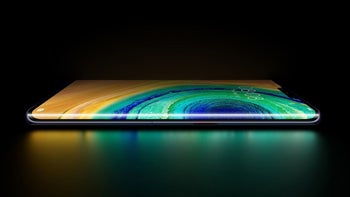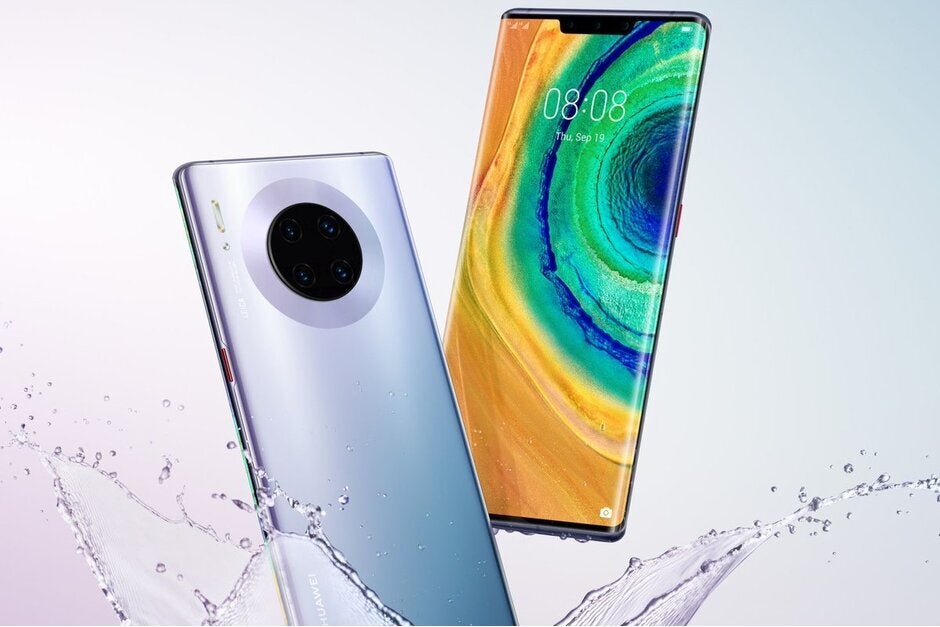Huawei says it will never use Google apps again and then walks it back

Huawei was placed on the U.S. Commerce Department's entity list in the middle of last May which prevents the Chinese manufacturer from accessing its U.S. supply chain. The company had built up inventories of key components in advance and has been able to find workarounds allowing it to skirt the ban. The one U.S. based firm that Huawei probably misses the most is Google since the ban prevents it from licensing Google Mobile Services. As a result, Huawei's latest flagship lines (2019's Mate 30 and the upcoming P40) use an open-source version of Android and won't run Google's Android apps.
The lack of Google apps like the Play Store, Search, Gmail, Drive, and others doesn't affect demand for Huawei's phones in China since most Google apps are banned in the country anyway. The lack of Google Mobile Services does impact the manufacturer's international sales. The company has developed its own Huawei Mobile Services to replace Google and Huawei has been scrambling to get app developers to support its own ecosystem and apps are available through its AppGallery app storefront. Huawei Mobile Services will debut on the P40 line expected to be released in March. The firm will reportedly spend $3 billion this year alone on HMS.
Huawei walks back comments about not needing Google's apps even if they were available
While Huawei managed to deliver 238.5 million phones last year, at the beginning of 2019 it had hoped to ship 300 million units and top Samsung to become the largest smartphone manufacturer in the world. It finished second behind Samsung and ahead of Apple, and things could have been worse. A wave of patriotism inside of China led consumers to buy the company's phones to protest what they perceived to be U.S. bullying of Huawei.

The Huawei Mate 30 Pro cannot run Google's core apps
With all of this in mind, you would think that Huawei executives would be wishing for the ability to license Google Mobile Services before blowing out the candles on a birthday cake or having a battle over a wishbone. According to German language newspaper DerStandard (via WinFuture), Huawei Country Manager Fred Wangfei said in Vienna today that even if the restrictions were to be lifted, the company would not add Google's apps to its new phones. This contradicts comments made last September by Huawei's consumer group chief Richard Yu. At the time, Yu said that if Huawei were allowed access to the U.S. supply chain, it would add Google apps to the Mate 30 line overnight.
The new line of thinking by Huawei is that it doesn't want to face this situation again at another time in the future. Thus, the manufacturer wants to stop depending on U.S. suppliers since it feels that it can no longer consider the states as a stable source of supplies. Still, it appears that Mr. Wangfrei might have jumped the gun with his comments. Huawei backtracked later today and said that its first choice is still "an open Android ecosystem." But the company wants to make sure that it can provide its own ecosystem if it is not allowed to use Google's.
The U.S. considers Huawei to be a national security threat and has since 2012. Lawmakers in the states are concerned about rumored ties between the firm and the communist Chinese government. What the Trump administration is concerned about is a law in China that allows the government of Xi Jinping to demand that Huawei spy on its behalf. As a result, U.S. officials fear that Huawei's phones and networking equipment contain backdoors that send information from American consumers and corporations to Beijing. The company has repeatedly denied these allegations and to date, no one has even been able to prove that they are true.
Besides its position as the second-largest smartphone manufacturer in the world, Huawei also happens to be the largest provider of networking equipment in the world. This has led the U.S. to warn allies not to use Huawei gear in their 5G networks. While Japan and Australia have heeded these warnings, Germany and Britain have not.










Things that are NOT allowed: